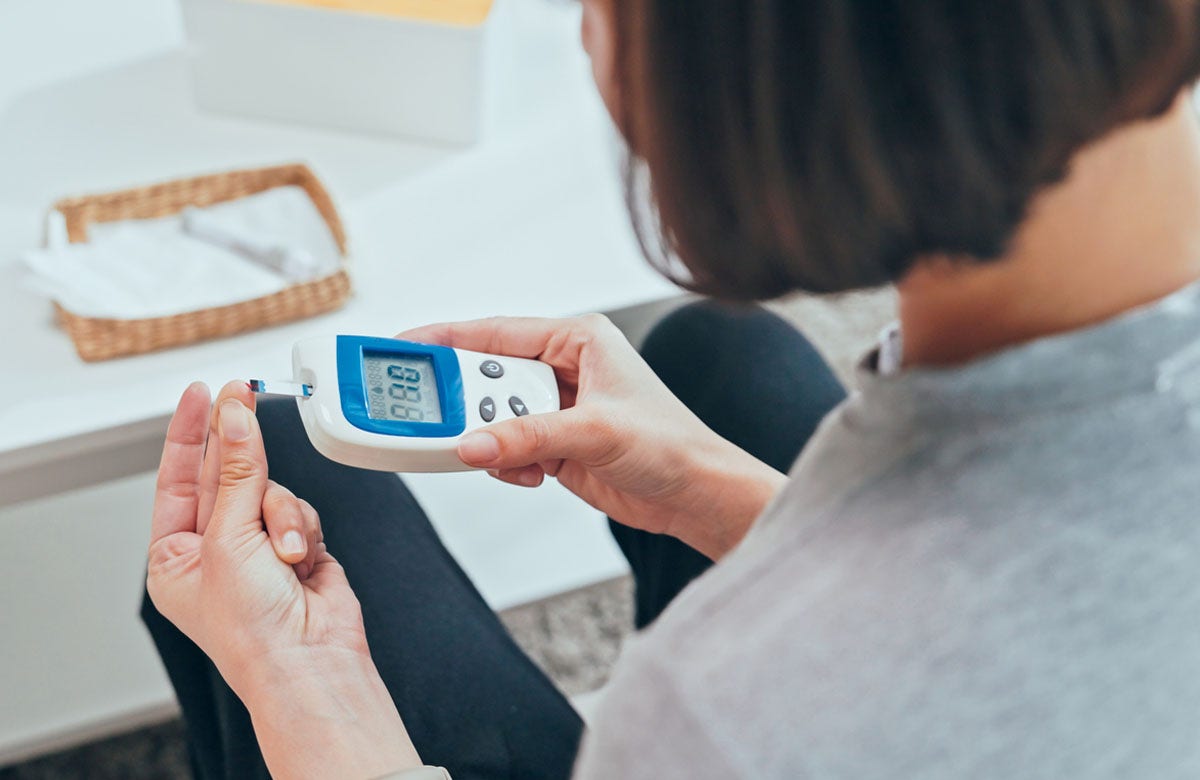A new blood test could reveal Parkinson’s diagnoses up to seven years before symptoms emerge.
Researchers from University College London and University Medical Center Goettingen in Germany used artificial intelligence to develop the test.
The study, which was published in the journal Nature Communications, included 72 patients with rapid eye movement behavior disorder (iRBD), a condition that has been linked to a higher risk of Alzheimer’s.
WHAT IS ARTIFICIAL INTELLIGENCE?
When the researchers used machine learning to analyze blood samples from the patients, they discovered that 79% of them had the same biomarkers as people with Parkinson’s.

A new blood test could reveal Parkinson’s diagnoses up to seven years before symptoms emerge, according to recent research. (iStock)
Over a 10-year follow-up period, the researchers confirmed that 16 of the patients went on to develop Parkinson’s, a movement disorder that affects nearly one million people in the U.S.
"By determining eight proteins in the blood, we can identify potential Parkinson's patients several years in advance," said co-first-author Dr. Michael Bartl from the University Medical Center Goettingen in a press release.
"This means that drug therapies could potentially be given at an earlier stage, which could possibly slow down disease progression or even prevent it from occurring."
"We have not only developed a test, but can diagnose the disease based on markers that are directly linked to processes such as inflammation and degradation of non-functional proteins. So these markers represent possible targets for new drug treatments."

When the researchers used machine learning to analyze blood samples from the patients, they discovered that 79% of them had the same biomarkers as people with Parkinson’s. (iStock)
Blood tests provide a less invasive alternative to a lumbar puncture (also known as a spinal tap), which has been used more often to diagnose Parkinson's in clinical research, according to professor David Dexter, director of research at Parkinson’s UK.
"This research, co-funded by Parkinson’s UK, represents a major step forward in the search for a definitive and patient friendly diagnostic test for Parkinson’s," Dexter said in the release.
RESEARCHERS FIND SOURCES OF FOUR BRAIN DISORDERS, WHICH COULD LEAD TO NEW TREATMENTS
Looking ahead, the researchers plan to follow the participants to confirm the accuracy of the test, and will also analyze samples from others in the population who have a genetic mutation that puts them at a higher risk of developing Parkinson’s.
"The findings add to an exciting flurry of recent activity toward finding a simple way to test for and measure Parkinson’s."
"With more work, it may be possible that this blood-based test could distinguish between Parkinson’s and other conditions that have some early similarities, such as multiple systems atrophy or Lewy body dementia," Dexter said in the release.
"The findings add to an exciting flurry of recent activity toward finding a simple way to test for and measure Parkinson’s."

Dr. Harvey Castro, a Dallas, Texas-based board-certified emergency medicine physician and national speaker on AI in health care, said the blood test could serve as a model for other diseases. (Dr. Harvey Castro)
Dr. Harvey Castro, a Dallas, Texas-based board-certified emergency medicine physician and national speaker on AI in health care, was not involved in the blood test but spoke to Fox News Digital about its potential impact.
For more Health articles, visit www.foxnews/health.
"As an ER physician deeply involved in AI applications in health care, I find this development particularly promising," Castro said.
"It exemplifies the potential of AI to diagnose and predict serious health conditions, allowing for earlier and potentially more effective interventions."

Nearly one million people in the U.S. are living with Parkinson's disease, according to the Parkinson's Foundation. (iStock)
This approach could serve as a model for other diseases, Castro suggested.
"Having a tool that provides more time before significant nerve cell damage occurs offers a substantial opportunity to address diseases at very early stages, where traditional diagnostic methods might not detect them," the doctor said.
CLICK HERE TO SIGN UP FOR OUR HEALTH NEWSLETTER
"This early intervention capability could significantly slow the disease progression."
Although knowing about a disease in advance can help patients prepare mentally and emotionally, Castro warned that it could be a "double-edged sword."

"Having a tool that provides more time before significant nerve cell damage occurs offers a substantial opportunity to address diseases at very early stages," one doctor said. (iStock)
"While some patients may benefit from early knowledge and the ability to plan their lives accordingly, others might prefer not to know about a potential future illness due to the psychological burden it could impose," he said.
Overall, Castro said, this AI-powered blood test represents a "paradigm shift" in the approach to neurodegenerative diseases like Parkinson's.
CLICK HERE TO GET THE FOX NEWS APP
"It underscores the importance of integrating advanced technologies into medical practice to enhance patient outcomes and transform health care delivery," he said.
Fox News Digital reached out to the study researchers for additional comment.
Melissa Rudy is health editor and a member of the lifestyle team at Fox News Digital. Story tips can be sent to melissa.rudy@fox.com.
.png)
 4 months ago
9
4 months ago
9









 English (US) ·
English (US) ·